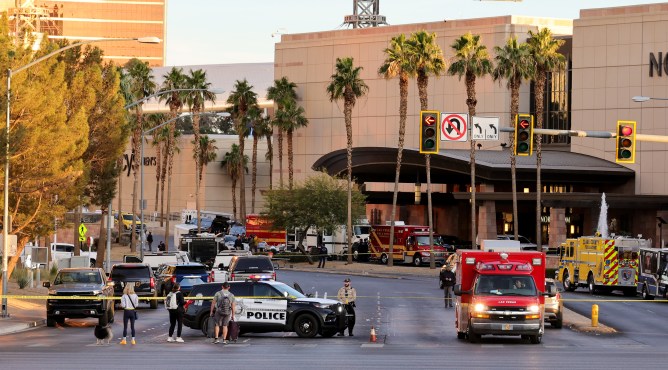Tragedy on Turo: How a Peer-to-Peer Car-Sharing Platform Fell Victim to Heinous Crimes
In recent days, two individuals rented cars from Turo, a peer-to-peer car-sharing platform, and used them to commit acts of violence. The first incident occurred in New Orleans, where a military veteran drove a Ford F-150 Lightning into a crowd of people, resulting in the tragic loss of at least 15 lives. Unfortunately, this was not an isolated incident. A short while later, an active-duty Green Beret rented a Tesla Cybertruck and parked it in front of the Trump International Hotel in Las Vegas, allegedly blowing it up.
The driver of the Tesla Cybertruck subsequently took his own life, leaving behind a community grappling with unimaginable grief and trauma. The events that unfolded have raised serious questions about how such heinous crimes could occur on a platform like Turo, which prides itself on ensuring the safety of its users.
Turo’s Response: Outrage and Commitment to Improving Safety
In response to these tragic events, Turo’s CEO, Andre Haddad, issued a statement expressing his outrage at the egregious abuse of their platform. He acknowledged that the company is working tirelessly to figure out how such incidents could have occurred and is committed to taking steps to prevent similar situations in the future.
The Challenge of Preventing Misuse
But the question remains: how could Turo or any similar platform have prevented this? The answer lies in understanding the complexities involved in screening potential users. Turo, like Airbnb, operates on a peer-to-peer model, where vehicle owners can rent out their cars to others for extra income or as a full-time business.
The company claims to use a proprietary multi-layer data-science-based trust and safety algorithm called the Turo Risk Score to screen each renter. This algorithm is said to draw upon 50 internal and external data sources to build, maintain, and improve on that score. However, it’s unclear what exactly this means in terms of performing normal criminal background checks.
A History of Controversy
Turo has faced controversy in the past after cars on its platform were found to be used for human and drug trafficking. Hosts have also shared their concerns about renters with criminal histories on the Turo subreddit page. Despite these issues, Haddad argued that the two perpetrators had valid driver’s licenses, clean criminal backgrounds, and were decorated U.S. military servicemembers.
He noted that even if these individuals had been flagged by anyone, including law enforcement, they could have still obtained a rental car from any traditional vehicle rental chain. This raises serious questions about the effectiveness of Turo’s risk assessment process.
Turo’s Statistics: A Small Number of Incidents
Haddad pointed out that Turo has facilitated 27 million trips over 12 years and that fewer than 0.10% have ended with a serious incident like a vehicle theft. While this may seem like a small percentage, it highlights the challenge of preventing misuse on a platform of this scale.
Moving Forward: Improving Safety Measures
In response to these incidents, Turo is investing in improving its risk score algorithm and has assembled a team of former law enforcement professionals to help assess future risk. The company is also consulting with national security and counterterrorism experts to learn more about how it can get better at preventing such tragedies.
Haddad’s commitment to transparency and improvement is laudable, but the question remains: what specific measures will Turo take to prevent similar incidents in the future? Only time will tell if these efforts are enough to restore trust in a platform that has been marred by tragedy.
The Broader Implications
This incident raises broader questions about the regulation and oversight of peer-to-peer car-sharing platforms. While Turo is not alone in facing challenges related to user safety, its response to this crisis will set an important precedent for the industry as a whole.
As we move forward, it’s essential that we have open and honest discussions about the challenges involved in ensuring safety on these platforms and explore ways to prevent such tragedies from occurring again. The tragedy of Turo serves as a stark reminder of the importance of prioritizing user safety and taking proactive steps to prevent misuse.
Related Developments
In related news, Netradyne has announced that it has raised $90 million at a valuation of $1.35 billion to expand its smart dashcams for commercial fleets. This investment highlights the growing interest in developing technologies that can improve road safety.
Meanwhile, SpaceX and Blue Origin are under pressure from the FAA to investigate their recent rocket tests after concerns were raised about the safety of these operations.
Conclusion
The tragedy on Turo serves as a stark reminder of the importance of prioritizing user safety on peer-to-peer car-sharing platforms. While Turo’s response is commendable, it raises serious questions about the effectiveness of its risk assessment process and the need for greater regulation in this industry.
As we move forward, it’s essential that we have open and honest discussions about the challenges involved in ensuring safety on these platforms and explore ways to prevent similar tragedies from occurring again.

